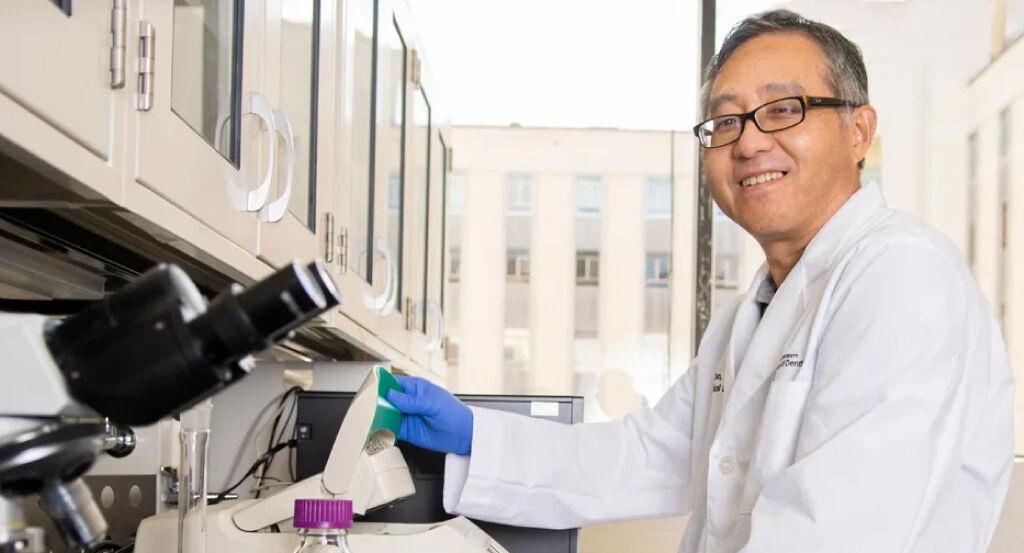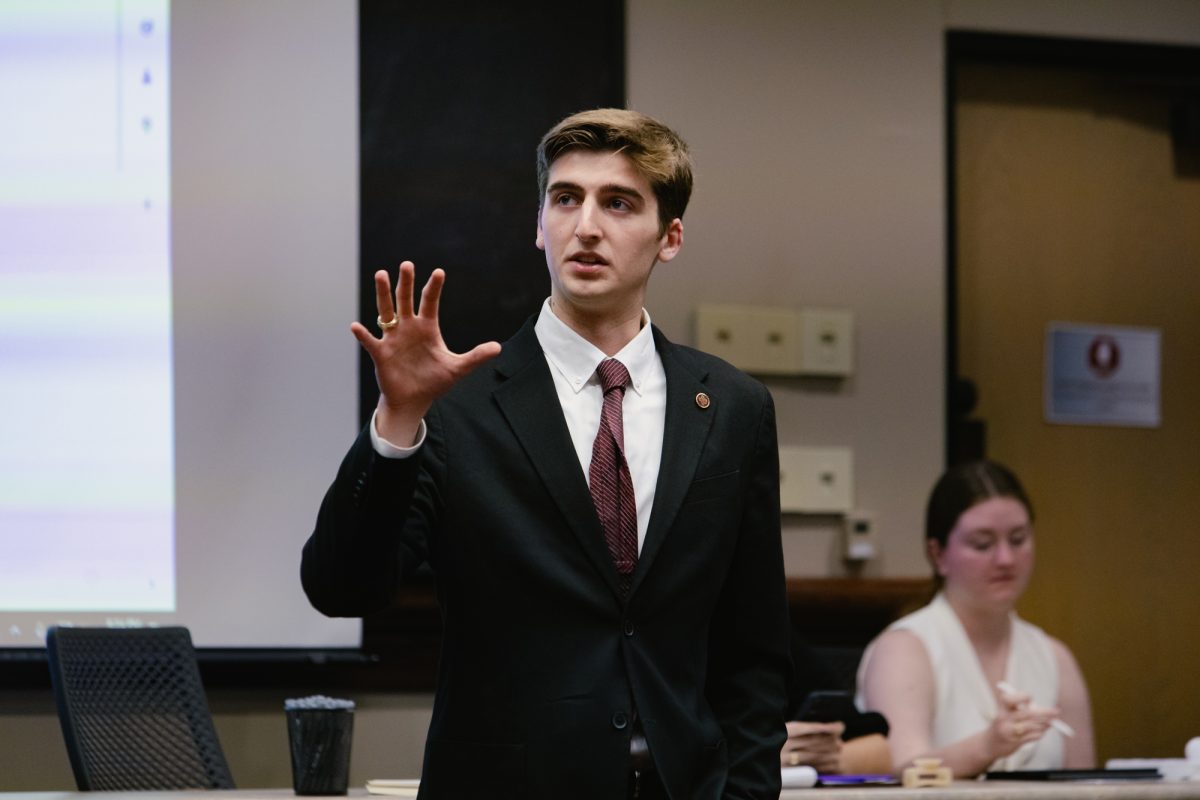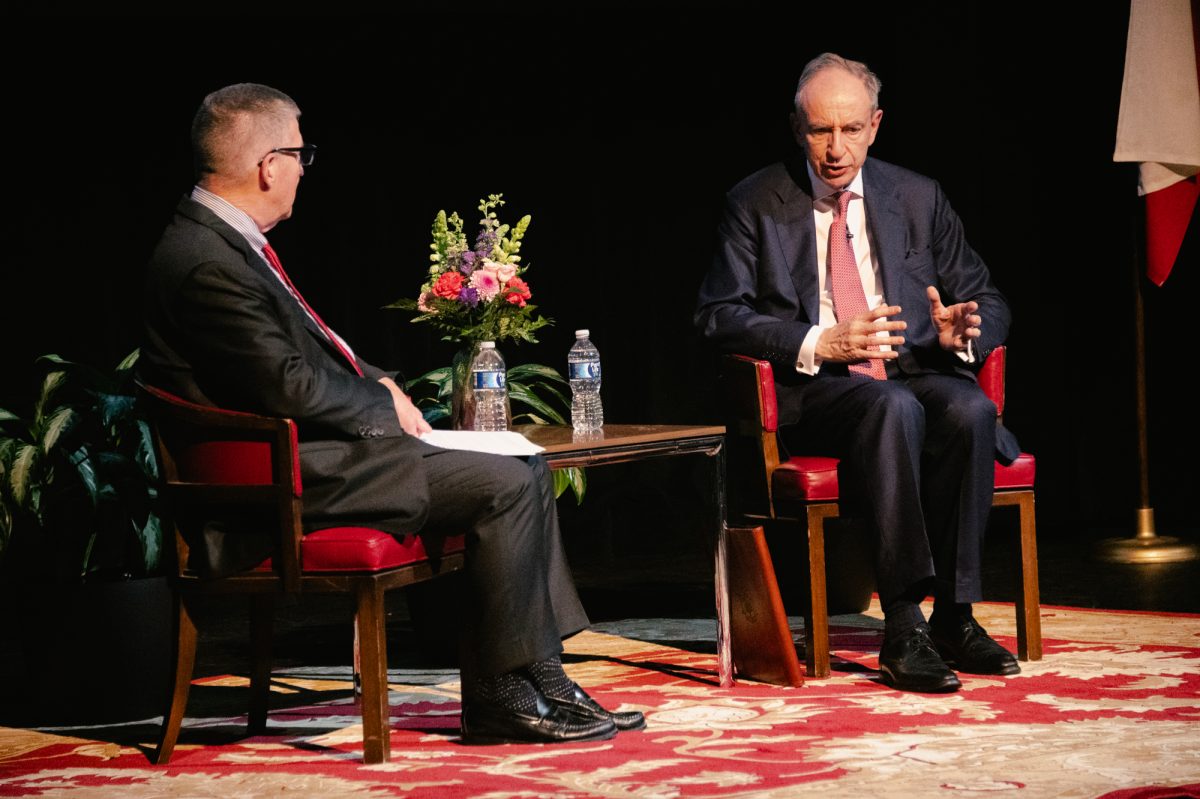Texas A&M biomedical sciences professor, Dr. Feng Tao, M.D., Ph.D., was awarded $230,000 by the Cancer Prevention and Research Institute of Texas to help with research efforts.
The Cancer Prevention and Research Institute of Texas, or CPRIT, was founded in 2007 and is now the largest statewide funder of research in the United States and the second-largest public funder worldwide, according to CPRIT communications director Mark Loeffler. It recently awarded the High-Risk research award, along with $237,000, to Tao and the A&M Health Science Center for high-intensity research in pain among oral cancer patients. The grant will go toward a research project aiming to convert certain types of cells to help reduce pain, entitled “A glia-to-neuron conversation for treating oral cancer pain.”
Tao received his M.D. from Wannan Medical College, according to dentistry.tamu.edu. In addition, he has an M.S in neurophysiology, a Ph.D. in Neurobiology and received his postdoctoral fellowship in neuroscience from Johns Hopkins University.
“Dr. Tao’s research interests focus on investigating central mechanisms underlying nociceptive transmission and analyzing neural circuits for chronic pain including different types of orofacial pain,” the website reads.. “His lab employs state-of-the-art techniques to dissect brain neural circuits that mediate pain processing in the central nervous system.”
Around 54,000 Americans will be diagnosed with oral cancer and the resulting physical pain just this year alone, according to The Oral Cancer Foundation.
“It will cause over 9,750 deaths, killing roughly one person per hour, 24 hours per day,” the website reads. “Of those 54,000 newly diagnosed individuals, only slightly more than half will be alive in five years.”
Communications Director of CPRIT Mark Loeffler said they have a detailed three-part mission dedicated to cancer prevention and research.
“The first part is to invest in the research of Texas universities and institutions, which we do through many academic research grants,” Loeffler said. “The second part is to help build life science infrastructures in the state. And the third is to fund innovation and breakthroughs in cures in cancer prevention and research.”
Loeffler also commented on the significance of Tao’s research and the importance of CPRITs involvement. He said this type of research has the potential to impact a large number of people, but also has accompanying risks.
“His work will have a high impact on the fight against cancer, but it’s also going to have higher risks, so it’s important to fund that kind of research because you get more return on that investment even with the risk,” Loeffler said. “Public funders can help provide that support for researchers to take those risks that could result in a high impact result.”
Loeffler said in order to receive approval for these types of grants there are multiple layers of peer review that applicants go through in order to be chosen.
“We go through a very rigorous peer review process when scanning applicants,” Loeffler said. “Scientists from outside the State of Texas will evaluate and provide it back to the agency, which then hands it to our oversight committee that decides on which grants to award.”
Biomedical sciences professor, Feng Tao, Ph.D., said his research qualifies as high risk because of the low amounts of data.
“This research that we proposed to receive the grant, is about developing a new approach to treating pain in oral cancer patients,” Tao said. “This is a high-risk and high-impact project because we didn’t have a lot of data. In the animal model, we didn’t see any side effects. This project is still in the early stages so we don’t have the data to support our conclusion yet. We need to do more studies to verify that there is not too much risk.”
Tao said his team used preliminary data to support its theory when applying for the grant, but the research needs to be studied further to ensure the correct function. In addition, there is a possibility this principle could be applied to other types of cancer pain as well.
“My lab has been working on pain for a long time,” Tao said. “I have been working in pain for more than 20 years, but this specific project we started one year ago. We did a preliminary study and got some data to support our work in the mouse model. In our project, we focus on oral cancer pain, but actually, if our approach works in our animal model I think it can be used for other cancer types because the principle is the same.”
Tao said this fund granted by CPRIT will allow him to continue his research and therefore make a significant difference.
“We will use the grant money to further our study, especially after the cell conversation,” Tao said. “We need to verify that the converted neuron is functional in the animal brain. We need to make sure the cells can be integrated into the brain circuits.”
Tao also said that he is excited about what the next steps of this project will entail.
“This is a very exciting project and I am very glad to receive the funding because it will allow us to continue this high-risk project. If we are successful I believe that we can make a significant impact on the pain research field,” Tao said.









